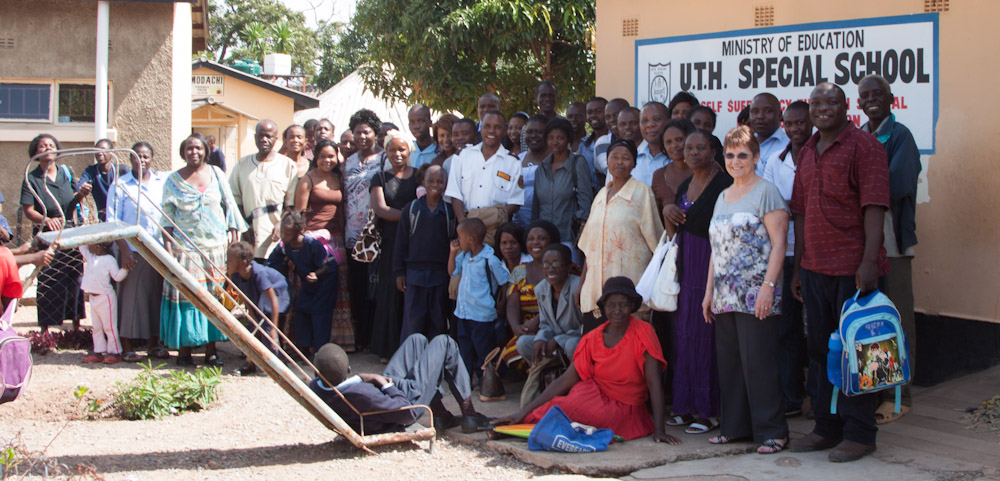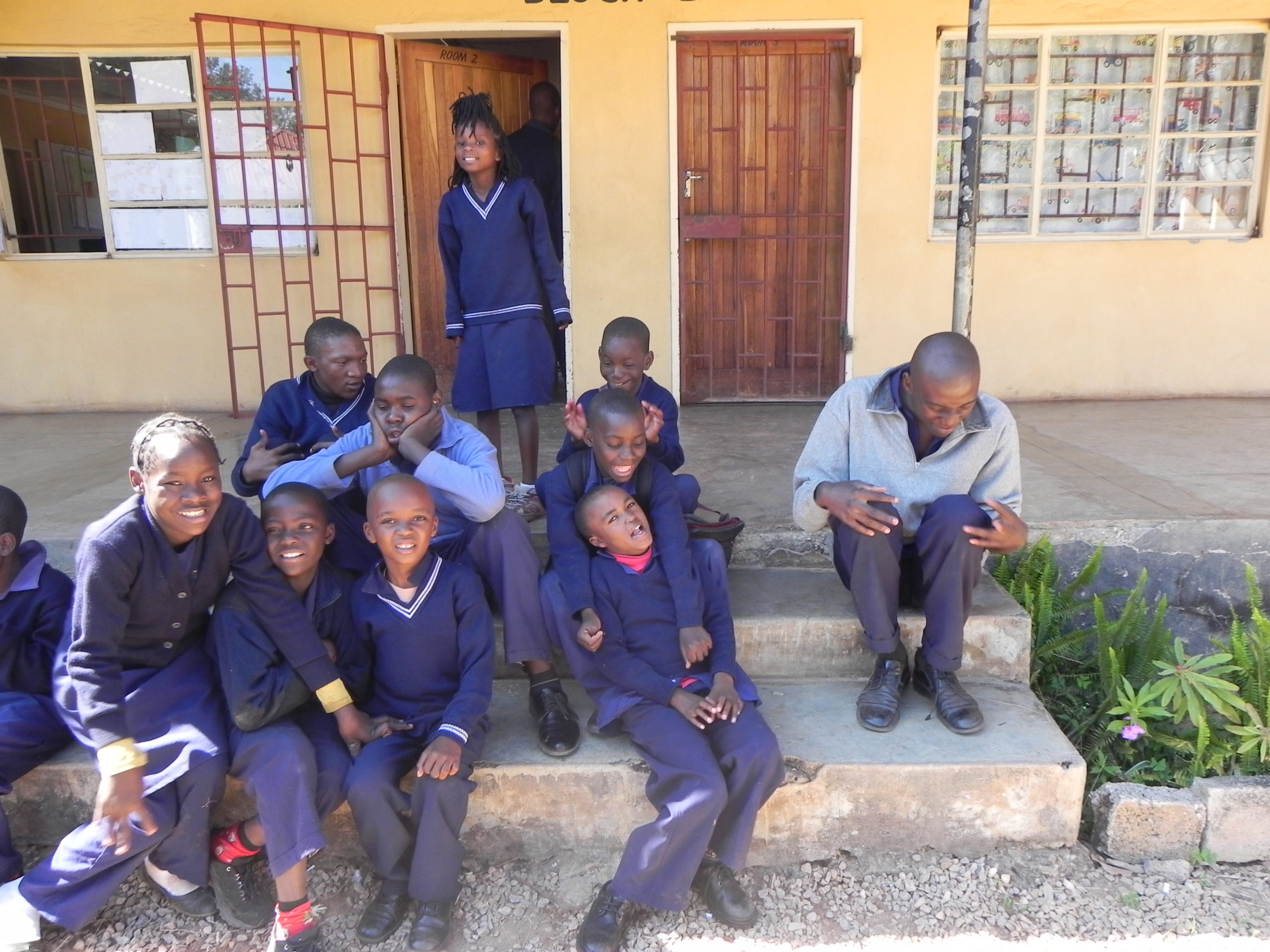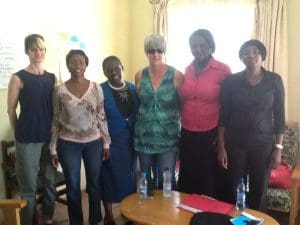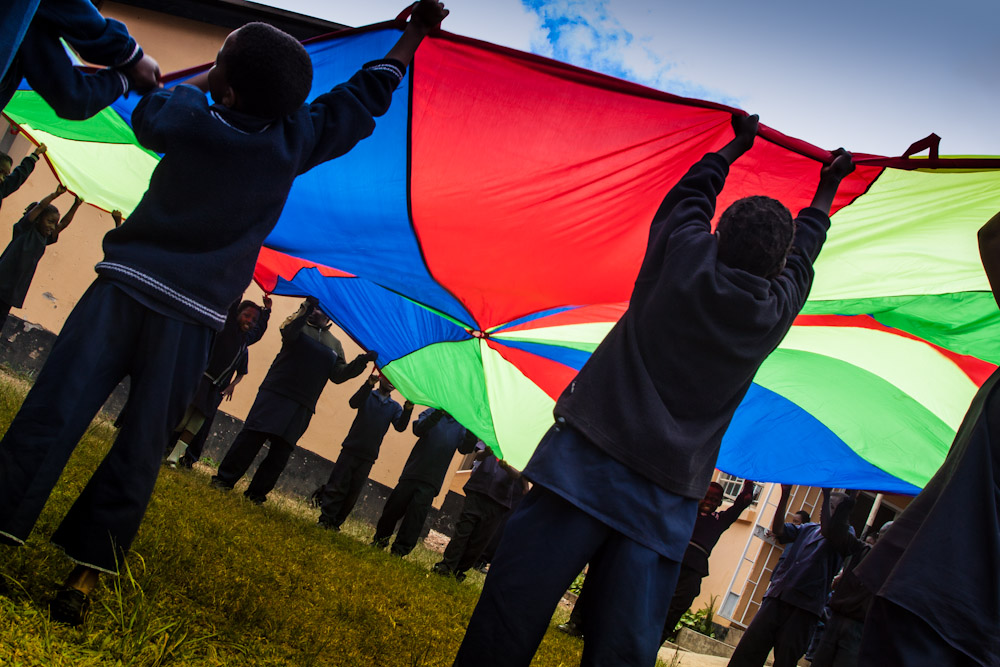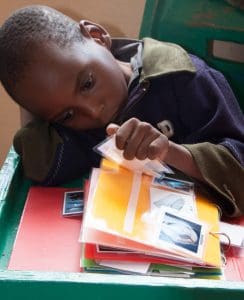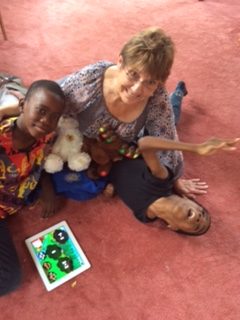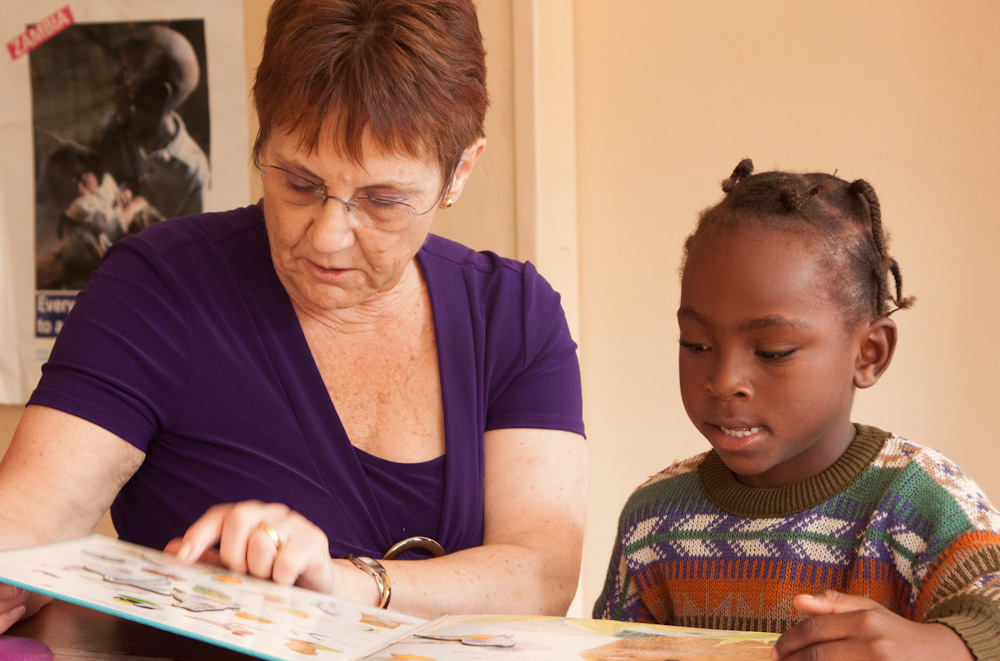It is usual for example to have one teacher with a class of 95 junior-age children. Interestingly the children learn as well as children in the UK as they are desperate to have an education.
Marion was asked to go and give some support to the school which is in the grounds of the University Teaching Hospital (UTH) and there are around 250 children in the school with various disabilities and especially autism, cerebral palsy and hearing impairment. The school is staffed with teachers who have some training and it is common for them to have 30 children in a class with no assistants at all. Imagine that in this country!
Marion, Deborah, Georgina and Joanne have been there to give the teachers extra training and especially in communication, positive behaviour support, classroom management, and PROACT-SCIPr-UK®.
Interestingly they do not need much training in physical interventions as the children are generally well-behaved and compliant. However, they do need lots of support in understanding autism, how to communicate using pictures and signing, and how to organise their days in school.
We have used some ideas from TEACCH to help with organising areas of the classroom to be for specific activities such as a story corner, a sensory area, water play, music activities, and an area for the class to take part in group activities.
We have spent time teaching the staff how to make equipment using boxes and packaging which are free – and it is great to see how inventive the teachers can be with lots of games and story books and bags to help equip the little library we have set up for them.
Two teachers are now attending university to get qualified in special education and we have been asked to work with the university on our net visit. We now have six teachers who are PROACT-SCIPr-UK® instructors.
Our fundraising both at and Liaise helps with the expense of travel to Zambia and also the cost of the University courses. The Rotary Club of Basingstoke Deane has helped us with these fees and the repair of the school’s minibus. The teachers could not afford the training without our help as everything is very expensive and most people live on low income and many on ‘the dollar a day’.
Staff had recently observed him writing and asking for things – we never know what is going on with our children so need not be surprised if they suddenly show that they can read and write. No one had taught him and he really enjoyed working on Joanne’s iPad! He has a wide vocabulary and although not able to talk can now write down what he wants and needs.
We have just managed to get him a laptop and he is working on it with his brothers – so some real freedom for him. In the beginning, he was just lying on the concrete classroom floor facing the wall – not very stimulating!
There is much to do, but the teachers are keen and excited by all we are able to share with them. and as the teachers learn how to give added skills to the children so the children will learn and have a better chance in life. Education is so important – without it, the country will never succeed.
‘It is better to teach a man to fish than to give him fish to eat’.
If you want to help talk to Marion and she will give you some ideas of ways you can help the project.

